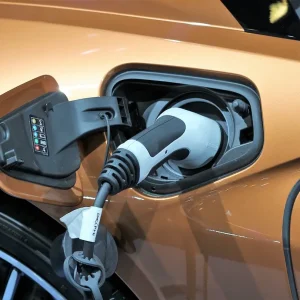Diesel is not dead, but fleets need to approach the powertrain mix with caution, ensuring they are choosing the right fuel for the job. That was the opinion of Steve Oliver, general manager of corporate sales at BMW, at a recent industry seminar.
Despite the drama surrounding diesel in recent months, industry experts gathered at ACFO’s autumn seminar, entitled ‘State of the Nation’, to discuss many pressing industry matters, including the importance of highlighting that diesel should not be disregarded as a fuel choice within the fleet and wider industry.
“Diesel is not dead, or even dying,” said Oliver. “In fact, in many instances, especially for high-mileage fleets, diesel is still the answer in vehicle selection.”
However, what was clear at the seminar was that the days of only having a diesel version on the fleet list were over. “What’s needed from fleets is guidance on issues such as the future of diesel,” said Oliver. “If you have someone living in an urban commuting environment, the fleet can maximise the benefit of a hybrid or an electric vehicle, but, realistically, diesel is still a key part of the answer for higher-mileage drivers. We strongly see it as a fuel for today and the future, too.”
Simon Carr, chief commercial officer at Alphabet, spoke to BusinessCar at the event, saying, “What is vital in fleet, as the powertrain mix changes, is consulting the client, understanding the right usage and applying the right drivetrain to that. It’s not ‘one size fits all’, and it has to be evidence and fact-based decision-making and Alphabet has been doing that for a
long time.”
Carr agreed that diesel still has a very strong case in fleet. “There may be lots of noise around diesel at the moment but it’s all based on situations and applications, and the misuse of alternative technology is equally dangerous,” he said. “If we have vehicles on a fleet that are designed to use fossil fuels and electricity, but they never get charged, it misrepresents the damage to the environment and the cost to the user. We’re not for or against electric or diesel, we’re for the right technology for the right application.”
One test that is expected to have a significant impact on the fuel mix going forward, ensuring that diesels are really as clean as they say they are, is the new Worldwide Harmonised Lightweight Vehicle Test procedure (WLTP), which replaces the NEDC lab test for cars.
The new procedure, which came into force last month, tests emissions from cars more thoroughly using more realistic real-world testing. Markus Oberfeld, who works in driving performance and CO2 at BMW, also spoke at the event, saying, “There is no doubt that the switch to the new process will affect the entire industry. The new standards are fed by customer data and our real behaviour on the roads. It is a more complex and accurate procedure, and we see it as an opportunity for us to build more efficient cars for our customers and the environment, in a mix of
powertrain offerings.”
For fleets, therefore, diesel still remains a critical fuel choice, and Oliver noted that sustainability in BMW’s model range was constantly increasing. “There is a major change in the way we want to live in the urban environment, and the values that customers have are changing drastically and quickly,” said Oliver.
While electric vehicles are just a small part of BMW’s sales performance, it now has the widest range of plug-in hybrids in the whole industry. Oliver continued, “They are recognisable as everyday cars on the street, but they have a plug-in hybrid capability that our customers will be seeing much more of in coming years.”
In fact, the BMW brand has recently outlined plans for 100,000 electrified vehicles to be sold in 2017. By 2025, electric models and plug-in hybrids are expected to account for around 15 to 25% of its sales. In the seminar, Oliver stressed that the continuous sale of conventional petrol and diesel engines would be critical to the brand’s success.





